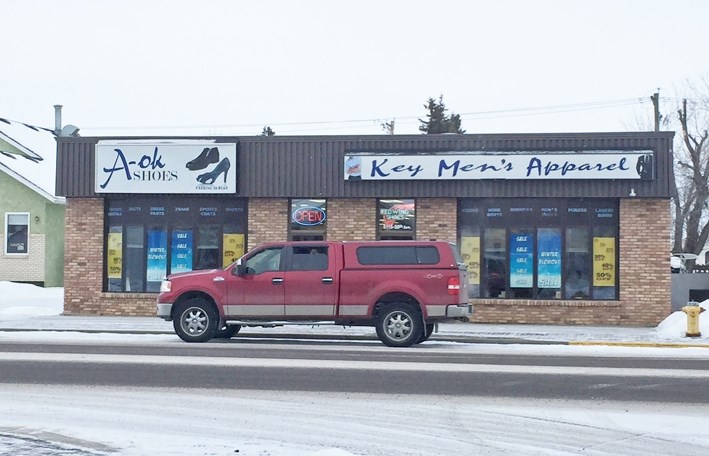Local business owners are feeling the pressure of a weaker loonie, as the price of importing goods from the U.S. rises.
The Canadian dollar dipped to below 70 cents U.S. on Jan. 12 for the first time since 2003 and has been hovering around the 70-cent mark for most of January.
“All one has to do is go down to the local grocery store and see the prices of vegetables, beef and various groceries and how much they've gone up,” said Sal Naim, a local businessman and owner of Mr. Mikes Steakhouse Casual. “That's all a direct consequence of the lower loonie.”
Higher import costs, due to the weak Canadian dollar, have been causing problems for a number of local restaurants and retail stores that rely on purchasing inventory from the U.S.
“As a buyer, it's going to increase our price to purchase the product, so in everyone's case you either make less on your product or you have to pass that down to the consumer and that's pretty much going to be the thing for everyone right now,” said Phyllis Kruesel, co-owner of A-OK Shoes and Key Men's Apparel.
Kruesel orders some of her inventory in U.S. dollars six months in advance and is uncertain how much the items will cost as she booked products when the loonie was healthy.
“I'm not sure what our costs are going to be right now, I won't know that until our invoices start coming in because what we booked our product at is probably not going to be what we're going to pay for it, it's probably going to be more,” Kruesel said.
Some local businesses that rely on U.S. imports are left with the difficult choice of increasing prices, as fewer customers are walking into restaurants and stores because of the slower economy.
“We have a scenario where we're coupled with declining sales because of the overall oil economy yet our cost of goods is being pushed higher,” Naim explained. “You will see higher prices not just in my restaurant but in restaurants everywhere and you will see a certain selection of items probably disappear off the menu because they no longer become profitable.”
Ashley Fine Floors, an independent flooring contractor, increased prices marginally because of higher inventory costs.
“It hasn't really slowed anything down, I mean it's not a huge increase, it's not going up by a 100 per cent or anything,” said Wendy Starchuk, sales representative of Ashley Fine Floors. “(Prices) are going up a little bit but not to the point that it's impacting how we sell.”
For Kruesel, passing the cost along to the customer during the current economic climate is not an appealing option.
“The last thing you want to do is raise your retail price because everyone's working with an economy that's already struggling,” Kruesel explained. “You just got to adjust your budgeting and spending in different areas to make it up.”
However, businesses can make some adjustments to ride out the effects of a weaker loonie.
“Small businesses in the area could benefit in tough times like this because people do tend to think more about supporting local businesses and sticking closer to home to keep their costs down as well,” said Robyn Ducharme, president of the Bonnyville and District Chamber of Commerce.
She added, “It could be a great time for businesses to take advantage of training and education opportunities and look for new ways to promote their business to new customers, potentially bring back old ones and then just supporting their existing base.”
While acknowledging that a drastic decline in the Canadian dollar does impede certain sectors of the economy, Ducharme encourages residents to support local businesses to help cushion the blow of higher costs.
“Spending your hard earned dollars here in Bonnyville is one of the best things you can do because it's going to keep our businesses here alive.”
Other business owners echoed Ducharme.
“Support your hometown because if you don't the hometown might not be here,” Kruesel said. “If people want to have things available in the community then they need to support them.”



